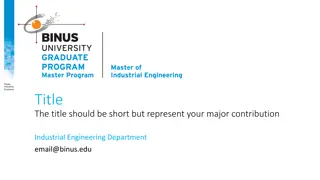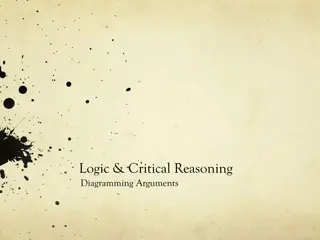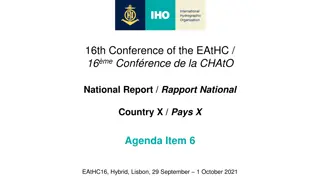Conclusions and Future Recommendations
This content delves into the important aspects of concluding a research project, including summarizing findings, establishing connections with existing literature, and providing recommendations for future studies. It emphasizes the significance of drawing broader conclusions and suggesting avenues for further research based on the current study's outcomes.
Download Presentation

Please find below an Image/Link to download the presentation.
The content on the website is provided AS IS for your information and personal use only. It may not be sold, licensed, or shared on other websites without obtaining consent from the author.If you encounter any issues during the download, it is possible that the publisher has removed the file from their server.
You are allowed to download the files provided on this website for personal or commercial use, subject to the condition that they are used lawfully. All files are the property of their respective owners.
The content on the website is provided AS IS for your information and personal use only. It may not be sold, licensed, or shared on other websites without obtaining consent from the author.
E N D
Presentation Transcript
Conclusions and Future Recommendations Lecturer: Dr. Samira Albati Kamaruddin myutmthesis.wordpress.com
Conclusions and Future Recommendations Contents Contents Conclusions Recommendations for Future Work
Conclusion : Discuss The Main Findings of Your Research Bring together all the scholarly elements the reading and the established literature in the area a summary of your research findings and in particular their importance and implications for the discipline Demonstrate how current findings connect with earlier work or existing theory how theory has been developed by virtue of the work create opportunities for future research
Conclusions important to connect this chapter with your introductory chapter show that how you have fulfilled the aims/ objectives/ hypothesis questions of your research this will show that you achieved what you set out to do
Conclusions In earlier chapters of your thesis, specific conclusions or subconclusions from the results of each stage of your investigation are already presented. So in this chapter, you have to bring these subconclusions together and sum up with much broader perspective. Should connect with the research objectives, its importance and the ways in which it contributes to the knowledge of the discipline. In short, construct a much wider and general conclusions of the entire investigation
Recommendations for Future Work Final stage. Generally accepted as good practice to recommend areas and possibilities for further research and future work that is indicated by the present project. Very few researches give clear-cut results, and most research uncovers more questions than answers. Should open up new questions that can be addressed in the future. recommendations could be based upon the results and conclusions researcher's personal opinion integrate previous studies.
Recommendations for Future Work Recommendations for further study also contain suggestions such as follow-up studies or replication studies imitations or delimitations that the study included and which further studies could help explain or clarify. These might include different methodologies, expanded populations or samples, or changes in the instrument itself.
Example of Recommendations A researcher into schizophrenia may recommend a more effective treatment. A researcher could make suggestions for refinement of the experimental design, or highlight interesting areas for further study. It is critical in determining the direction taken by the scientific community, but the researcher will have to justify their findings.


























